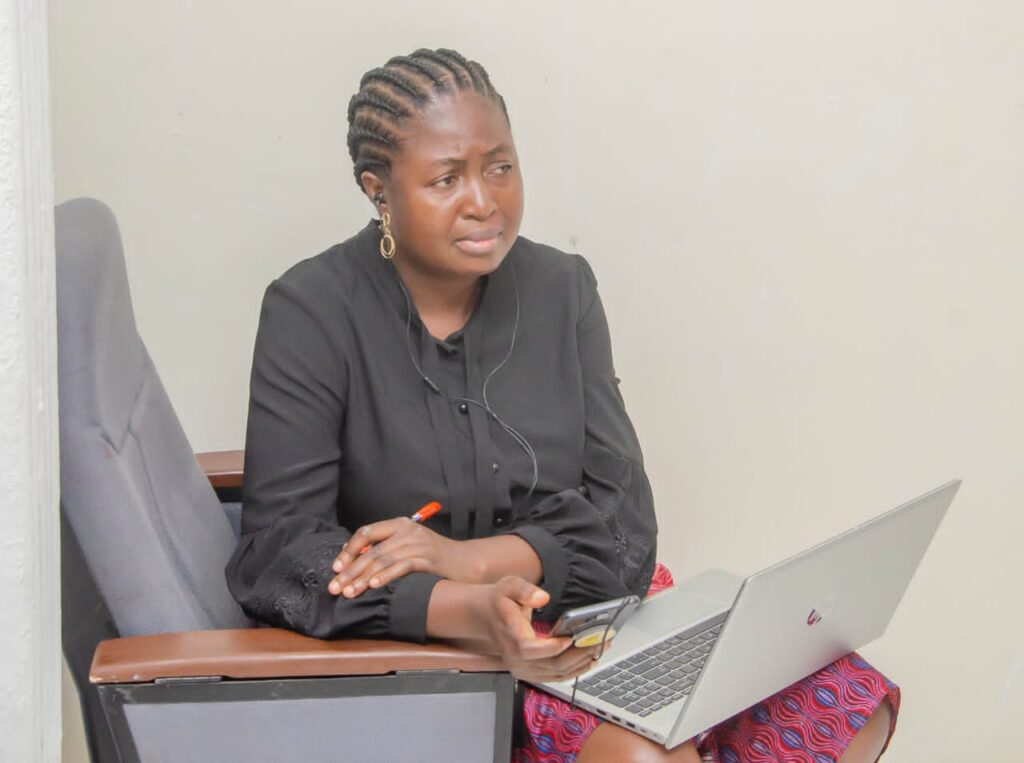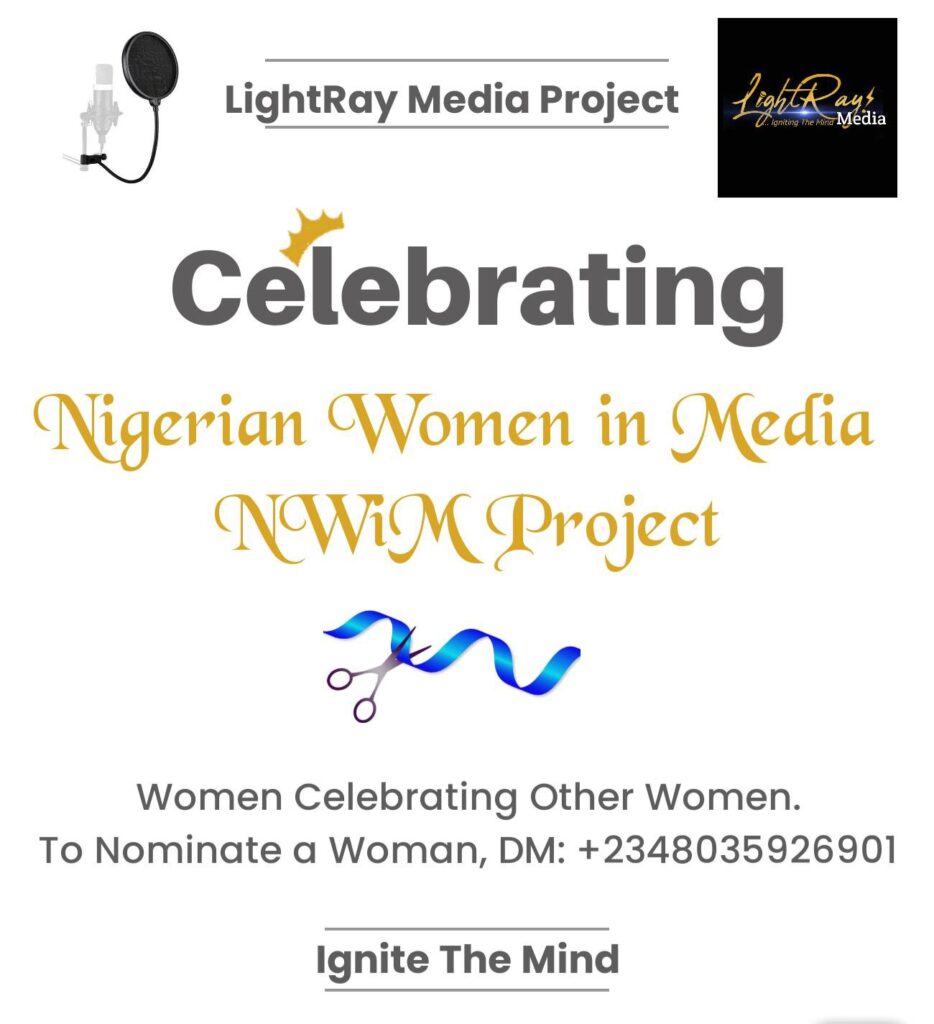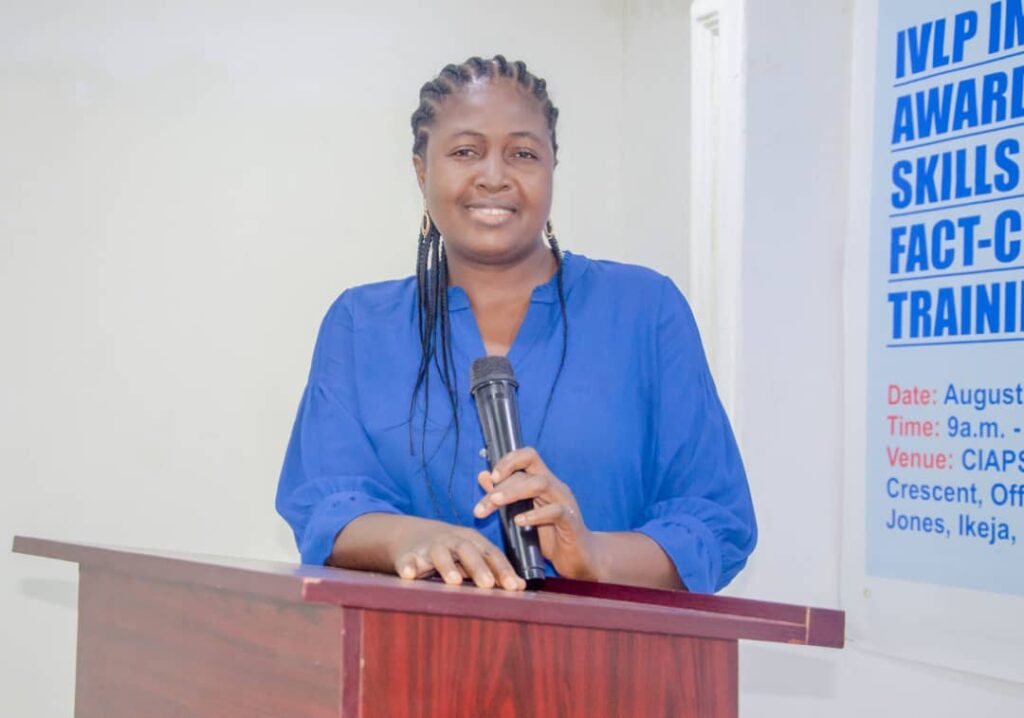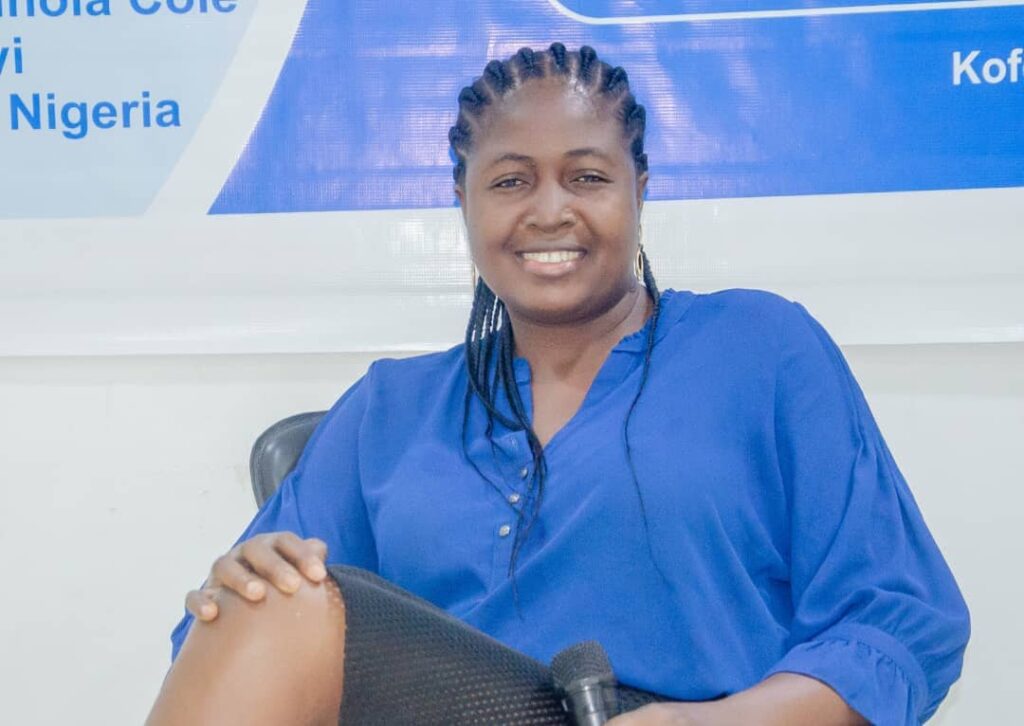My Media Journey: If Journalism doesn’t Pay Well, it Won’t Attract the Best. Even if They come, They won’t stay – Kofoworola Belo-Osagie, Commissioning Editor
Kofoworola Belo-Osagie is a woman with her eyes focused both on the ball and the goal post. A self manager and manager of people and projects, she understands that for the Nigeria Media Ecosystem to thrive better and stronger, personnel development of staff across all beats, as well as their individualised development, is now non-negotiable if the industry hopes to retain the Cub Reporters of the Gen-Z generation to be inspired to work solely on passion compared to how the generations before them viewed their roles and contributions to Free and Accountable Press. Step into Kofoworola’s world with us in this Special Exclusive Series on Nigeria Women in Media #NWiMProject by LightRay Media.
When do you recall you got your first spark for journalism ignited?
I would say that my interest in journalism was kindled by one story in my Dad’s Reader’s Digest collection. It was about a girl who got trapped under a train and how a kind eyewitness kept her alive until help came. The story was so detailed it was so well written from all angles that I wondered how the writer got all the details and put it together so beautifully and I wanted to be able to write like that. At the time, I had no clear vision of journalism. I realised that I loved a well crafted story. When I became a journalist and my Editors started asking, “who wrote this?” I knew there was something for me in journalism.
How did you pivot or even change the course of your career?
I think every time I had to do a significant story I felt it was no ordinary responsibility and I really hoped that my stories made an impact, so it didn’t happen just once. Early in my career, I had bosses who enlightened me on opportunities in journalism. They challenged me to do significant stories to win awards, so I knew early that I had to work hard. I pursued good stories and afterwards I pursued training and all kinds of opportunities, both at home and abroad, to improve myself. But I will say the turning point was from 2014 when I decided that I just needed a change. I was bored doing everyday things and I took steps to go back to school; I applied for a mentoring fellowship, Women in Successful Careers (WISCAR), and pursued international opportunities.

Kofoworola Belo-Osagie: From 2014, I can say I accounted for every year. I actively sought fellowships, training, and mentorship. I even submitted a research paper. PC: Kofoworola.

What were some of the struggles for you in the early stages of your career?
First, the pay. It wasn’t taking me home at all.
Second, I became a desk head too early – less than two years on the job. I excelled and was noticed early which was a good thing because it meant I was challenged to do more. When my boss who was heading the Education desk at the Nation left for Compass, I became the de facto head of desk. Looking back now, I think it was too early and actually slowed me down. I had to manage production, which limited the flexibility I had to pursue groundbreaking stories as long as I wanted. It was a lot of pressure. Becoming the head of desk in a short time slowed me down. I think I would have achieved much more if I was not given that position so early. Don’t get me wrong, while it was good on the one hand (and I appreciate the confidence the management had in me), I missed the freedom to pursue stories beyond the limits of production deadlines.
How did you overcome these seeming barriers? Why was it important for you to overcome them?
While at The Nation, I think I was able to challenge myself. I did not settle for mediocrity. I always wanted to become better, so I pursued stories; and personal development; and I still achieved a lot. From 2014 I can say I accounted for every year. I actively sought fellowships, training, and mentorship. I even submitted a research paper.
What are some of the stories or projects you’ve done that was the most impacful in the course of your career?
It wasn’t always easy to measure impact I did for many stories that attracted the attention of government, international organisations, schools, and many others. Some stories I expected to blow up, did not and those I didn’t even think about got a lot of attention. I can mention one short story about a state’s WASSCE result being withheld generating more reaction than I expected. There was one about the Federal Government delaying salaries of newly employed teachers of Federal Government colleges for over a year in the name of IPPIS capturing and illegal recruitment. After my story, the government sped up the process. But there were some stories I did that I loved so much and was not sure of their impact. One of my favourites was a short story I did of children in a public primary school spending twenty naira on lunch. This was in 2011 or 2012. The N20 plate rice was like two table spoons of rice and a drop of stew. No protein! I was shocked! And some of the pupils couldn’t even afford it and looked longingly at others who could.
So far on the job, have you ever experienced burnout, mental fatigue, or mental health crisis? How did you handle it? How can women and men in the media reduce burnout, mental health breakdown or prevent it?
I did experience burnout many times. I looked for activities and networking opportunities outside journalism to rejuvenate. Travelling also helped. Whenever I got a chance to travel on the job, it was time to recharge my batteries. I think I experienced a mental health crisis during the COVID-19 lockdown. I think the burnout happened due to information overload. As a journalist, I had to know the latest news about the pandemic and also send in reports. It took a toll on me. But Nigeria did better than I expected in weathering the pandemic. Thank God!
To reduce burnout, journalists should take their annual leave seriously. I spent the first five years of my career without taking my leave. When I took my leave for the first time, I found out I had punished myself not taking my leave. I advise journalists to take their leave and switch off work when they do. If possible, travel from your base during your leave.
Let’s talk about online harassment. Have you experienced it in any form? Or any other threats on the job? How did you deal with it?
I have not experienced online harassment as such. I have become more aware about my presence online so I keep a very low profile. I have found it difficult to separate myself from my job online so I read more than I comment. I comment only to correct errors. Journalists should be careful what they post online. The internet never forgets.
If you were to suggest how women can cope with online harassment, what tips would you give?
First, keep your own space clean. Don’t post what others will use as fodder for harassment. But if you are a victim, please report to the appropriate authorities.

Kofoworola Belo-Osagie: Media owners and managers should pay attention to the personal growth of their reporters and assign them responsibilities that promote their development. PC: Kofoworola.

What career projection are you setting up for yourself you intend to meet up?
plan to improve my qualifications and work experience. And I think I am already on the path to achieving these things.
What training programmes or short courses have you attended, which you applied on the job that made the most impact for you?
The various training programmes I attended impacted me in one way or the other. It’s difficult to credit one particular training. But the last two – the International Visitors Leadership Program (IVLP) and the Wole Soyinka Centre for Investigative Journalism Female Reporters Leadership Programme (FRLP), which both took place in 2021 really helped me. The IVLP, though virtual, made me curious about misinformation and disinformation so I learnt more about fact-checking tools, won the IVLP Impact Award and trained journalists to use some digital tools and fact-check in 2022. I still use some of the knowledge I gained from fact-checking in my job. The FRLP inspired me to move out of my comfort zone. Our cohort focused on Sexual and Gender Based Violence. The knowledge of the SGBV laws imparted during the programme has come handy in my present job.
What suggestions will you give media owners, heads of departments to help boost effectiveness in the workplace?
Media owners and managers should pay attention to the personal growth of their reporters and assign them responsibilities that promote their development. Cub reporters should be allowed to cover several beats before specialising in one. Production should be rotated – or there should be a desk that handles production so production schedules do not hinder reporters from pursuing stories.
If you were to reimagine your career, what would you do differently, starting today?
Cover various beats; seek greater flexibility in the newsroom to pursue investigative stories; Never give up.
How and what can women in media begin to do differently to hold their own space within the media industry?
Give their best. However, they need to be supported by the management to grow. They need equal opportunities. They need to see a clear pathway to career progression comparable to their male counterparts. Women journalists need support in pursuit of work-life balance – that is, giving their best at work while raising their families and taking care of their homes.
Tell us about your accomplishments that makes you proud of yourself and inspires you to do more.
I am still growing. It’s difficult. There is still so much to be done. I am not resting on my oars. Maybe you can ask me in 10 years. Seriously, I am looking forward to the time I can say I have arrived (we both smile).
What tips in personal development, career pursuit, network strategies, and wealth creation would you advise other women in media, including men, to tap into?
Always seek to add value, work hard to improve yourself, be open to learning, and keep relationships cordial. I don’t think you can go wrong if you do these.

Kofoworola Belo-Osagie to Media Owners: Funding must improve. Ownership must be independent. Journalists need to be trained. Advancements in technology has changed journalism practice. Many journalists don’t know how to exploit the new tools of their trade. This needs to change. PC: Kofoworola.

Which aspects of your work give you the most challenges when it comes to the act of balancing work and life? And how were you able to deal with these?
Balance is difficult to achieve without a support system. Journalism is demanding. Without my family supporting me, I would struggle badly.
Tell us something about the media industry you would like to see change for the better?
The industry does not pay well enough. I hope that can change so journalism can be competitive and more professional.
And why is this change important?
Gen Zees are not interested in the hardship we experienced and rightly so. If Journalism doesn’t pay well, it won’t attract the best. Even if they come, they won’t stay.
What is your current role and responsibilities you handle?
I am a commissioning editor for an online medium. I work with researchers to publish informed article based on their research findings and why it matters. This is usually in response to trending issues in the society.
How do you think the Nigerian media can compete more favourably with international media organisations?
Funding must improve. Ownership must be independent. Journalists need to be trained. Advancements in technology has changed journalism practice. Many journalists don’t know how to exploit the new tools of their trade. This needs to change.
Written by ERU.






Comments